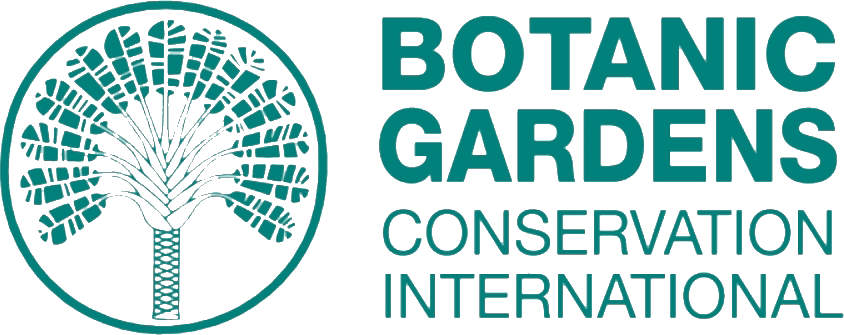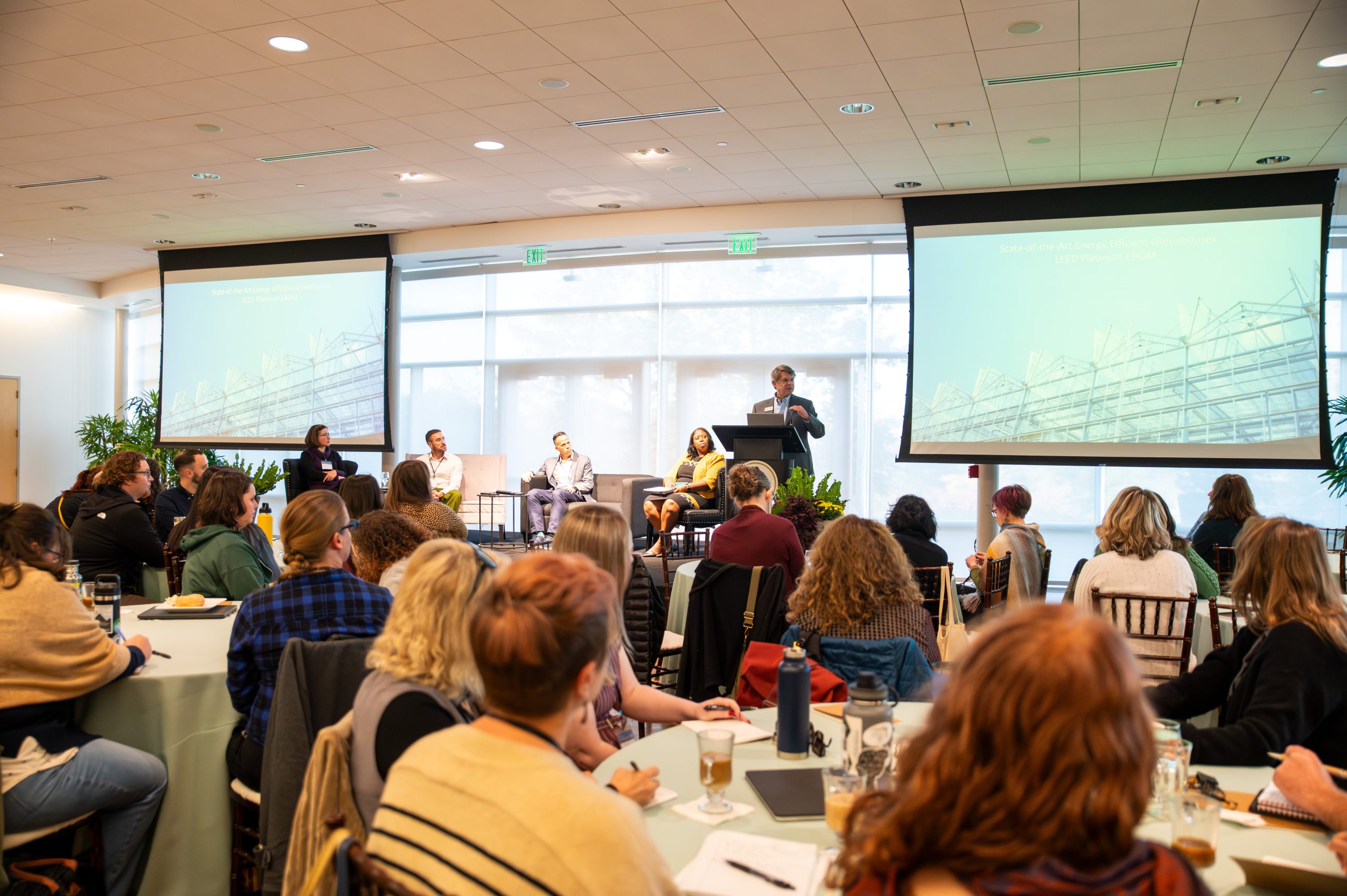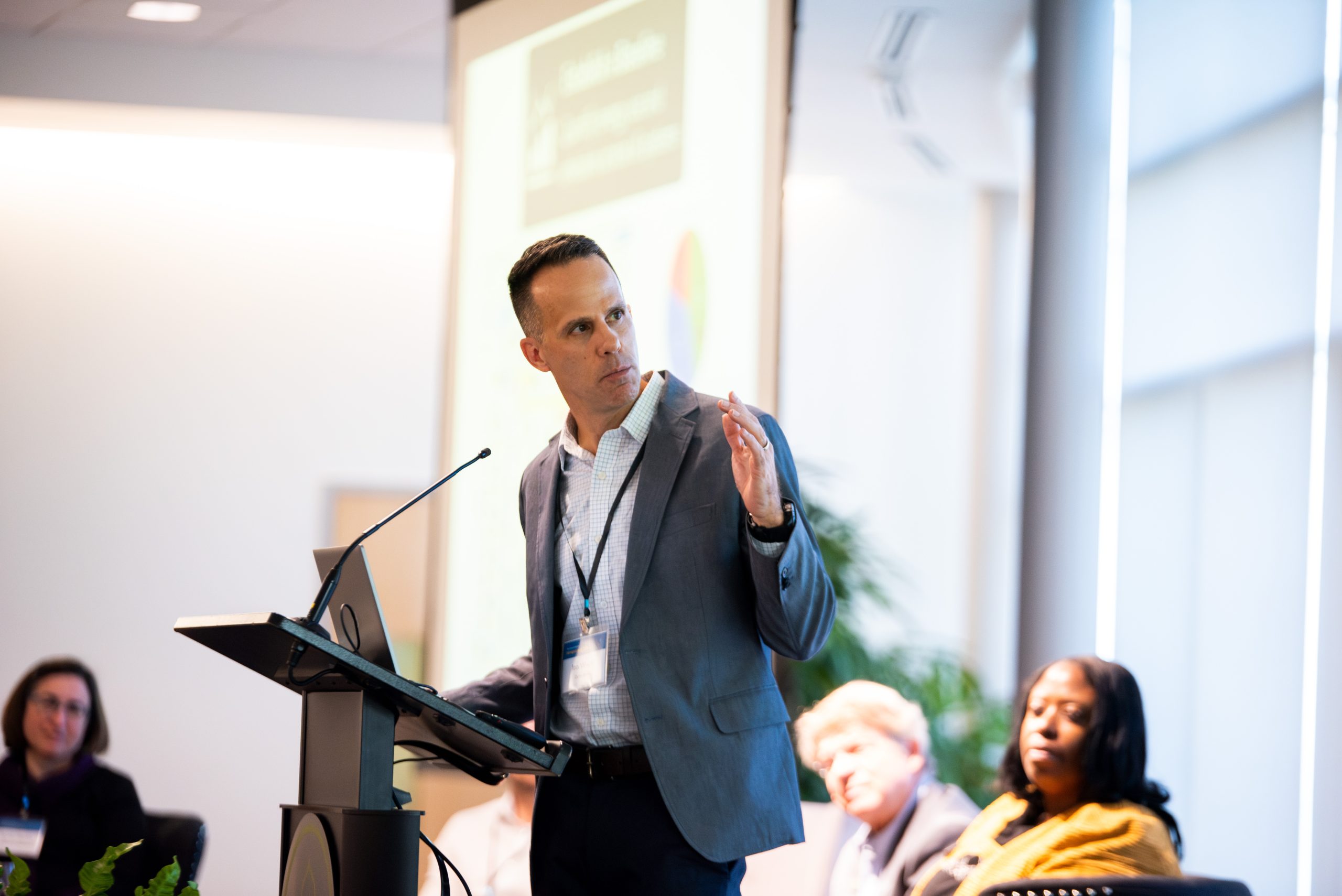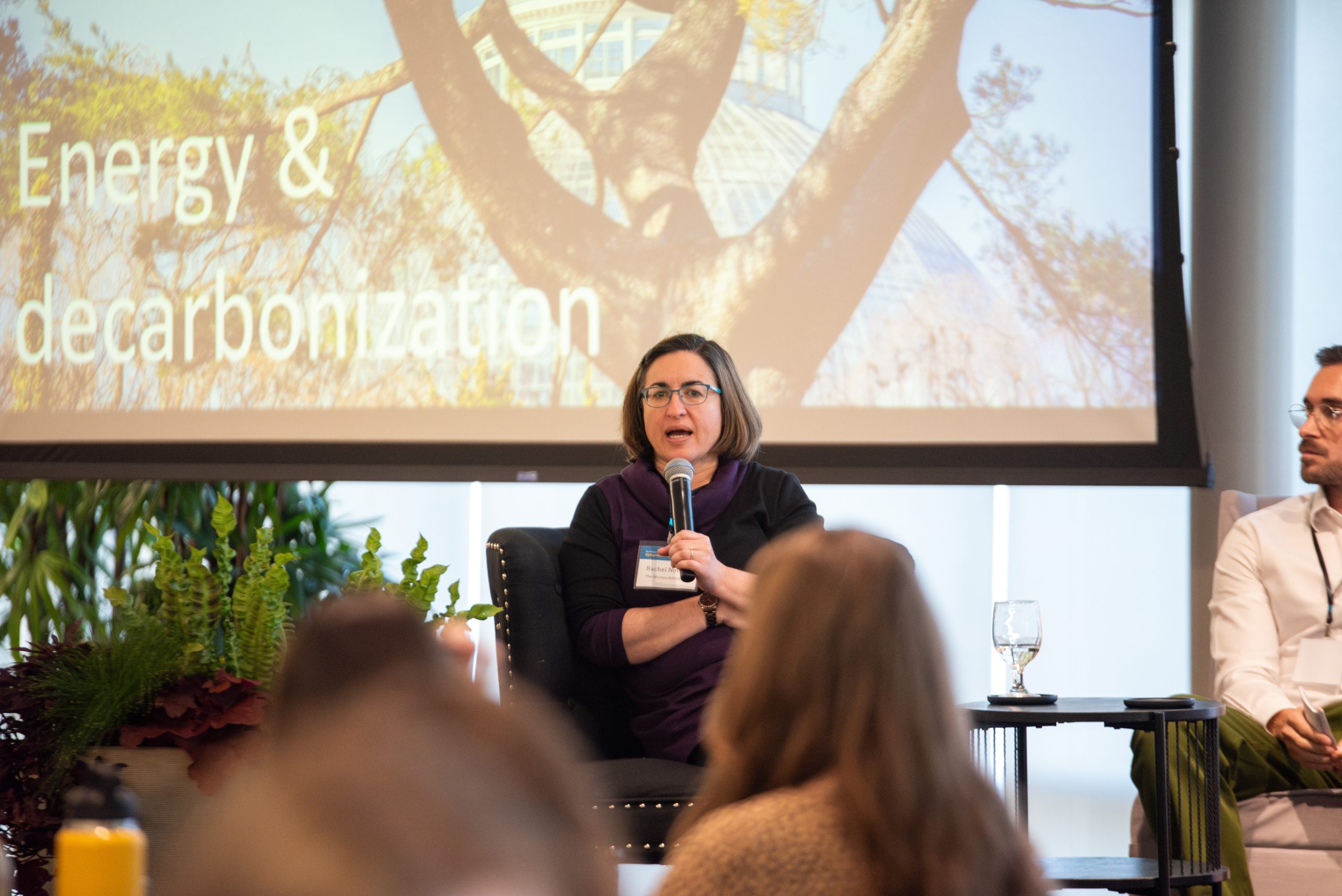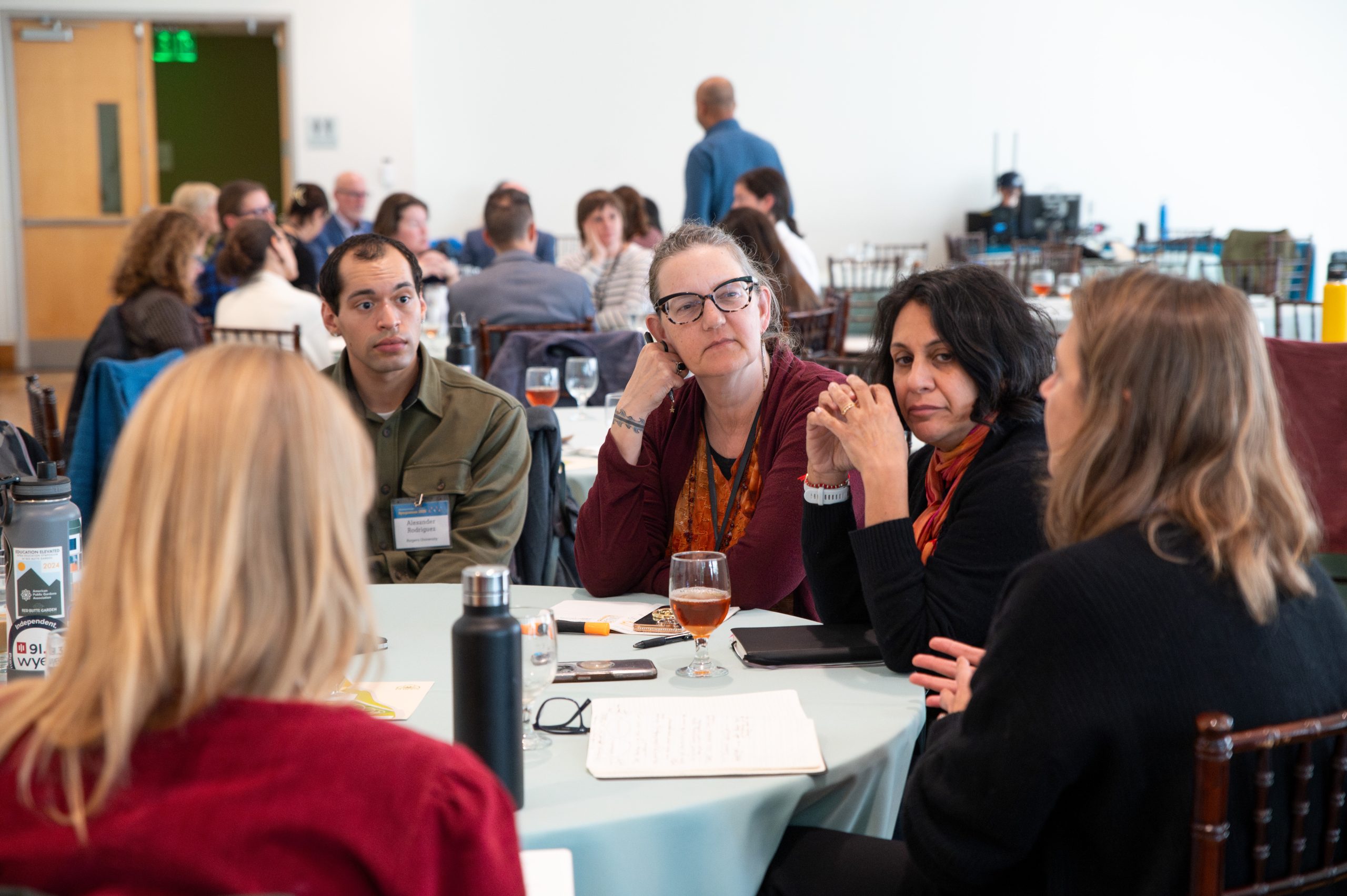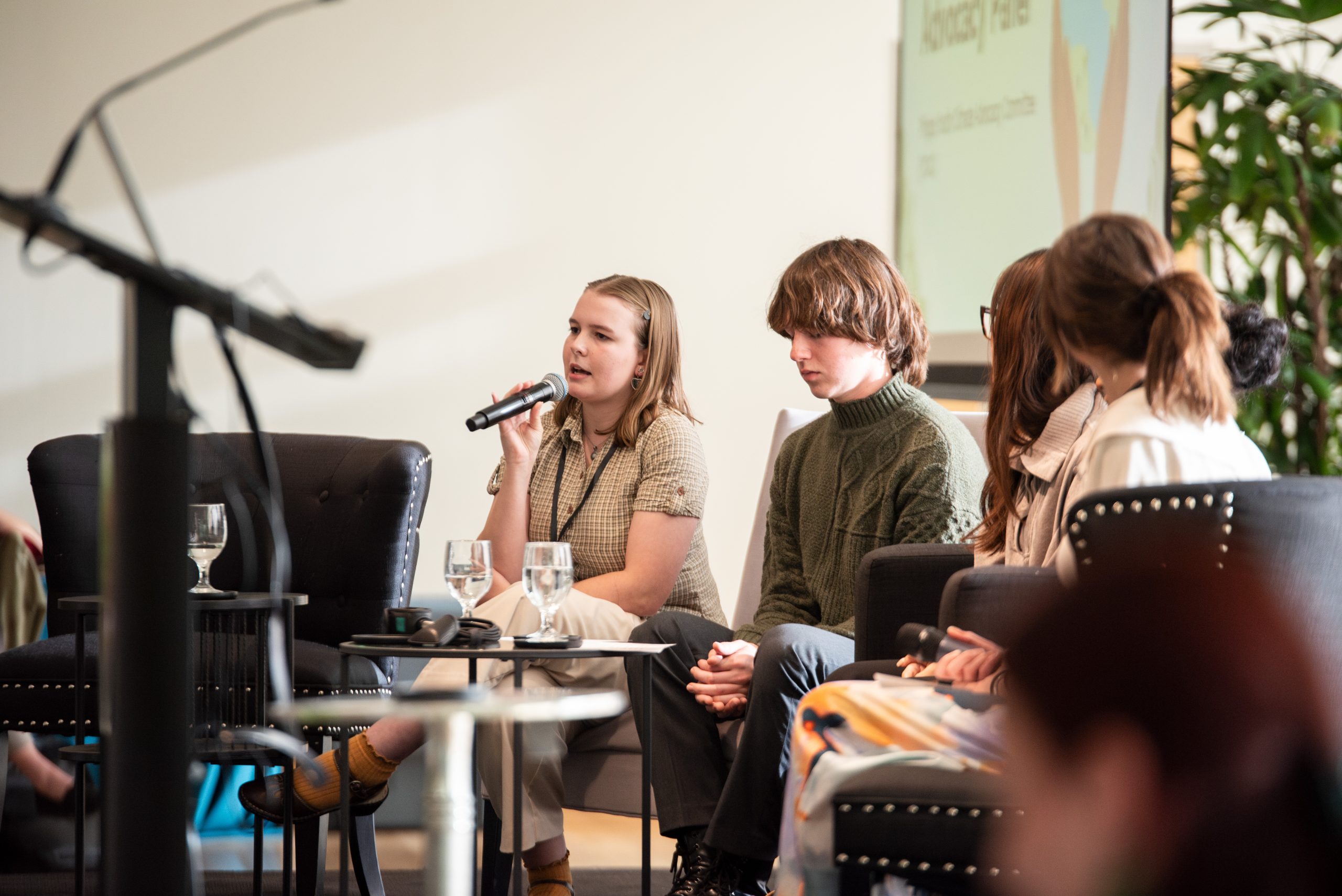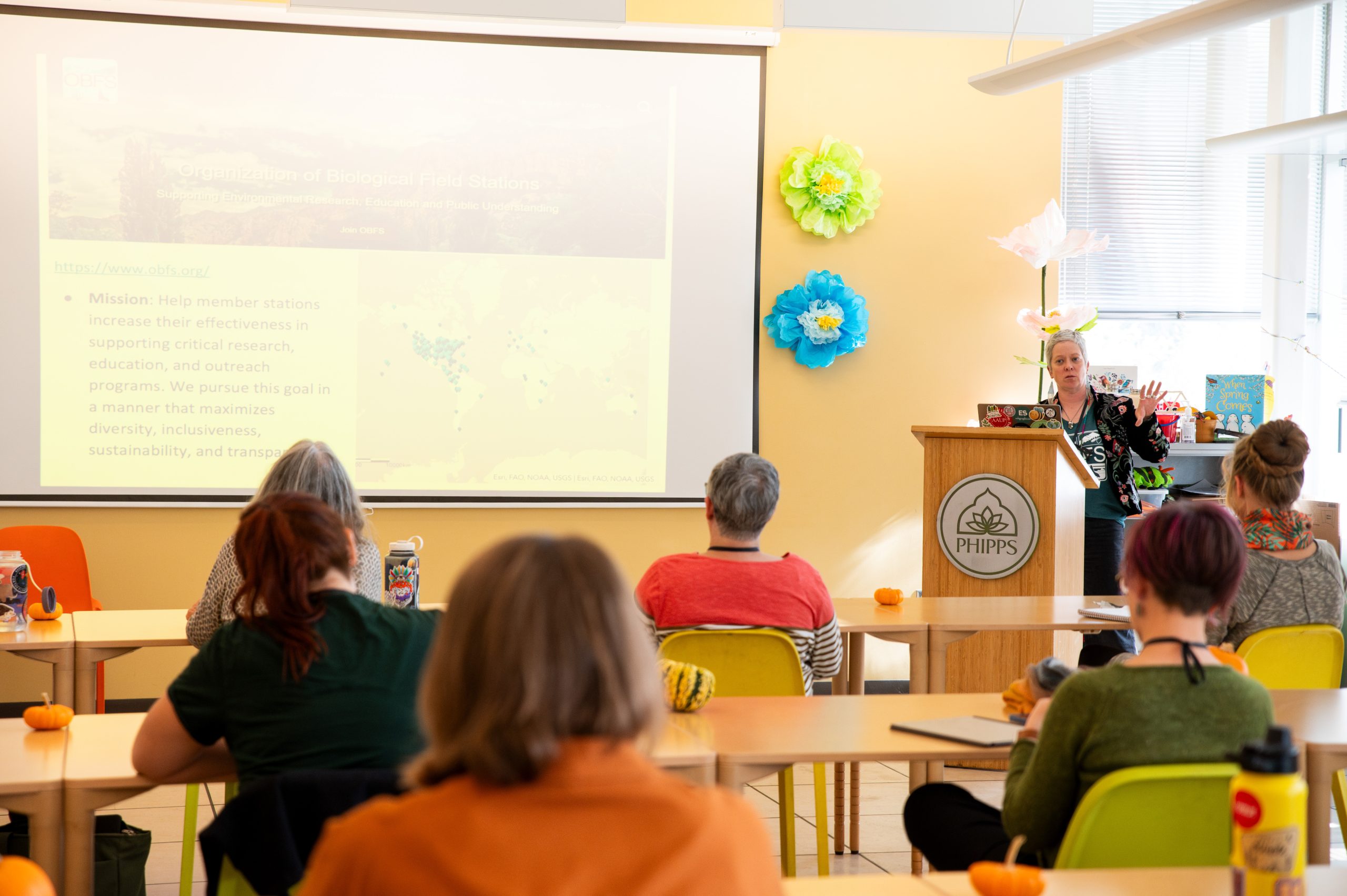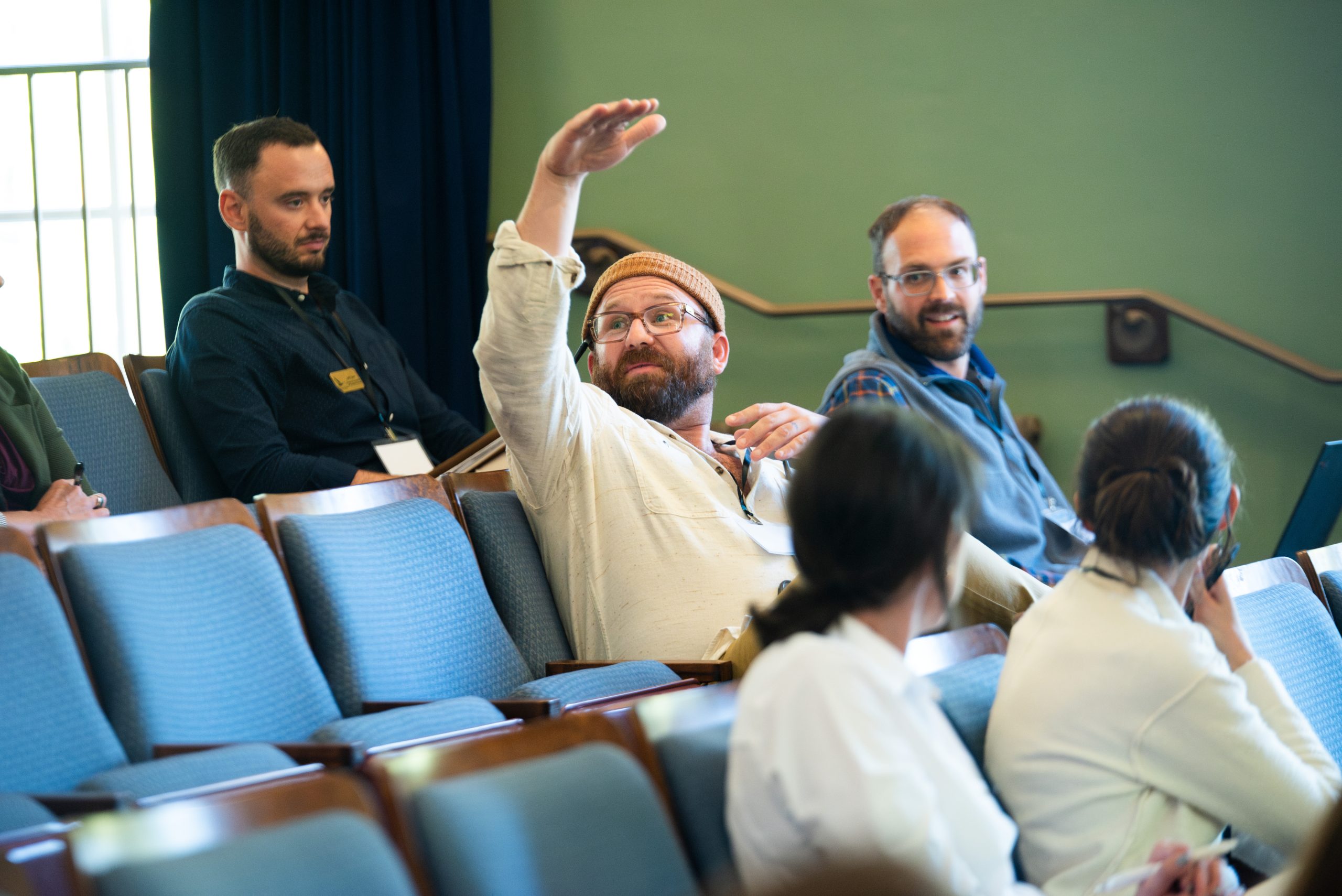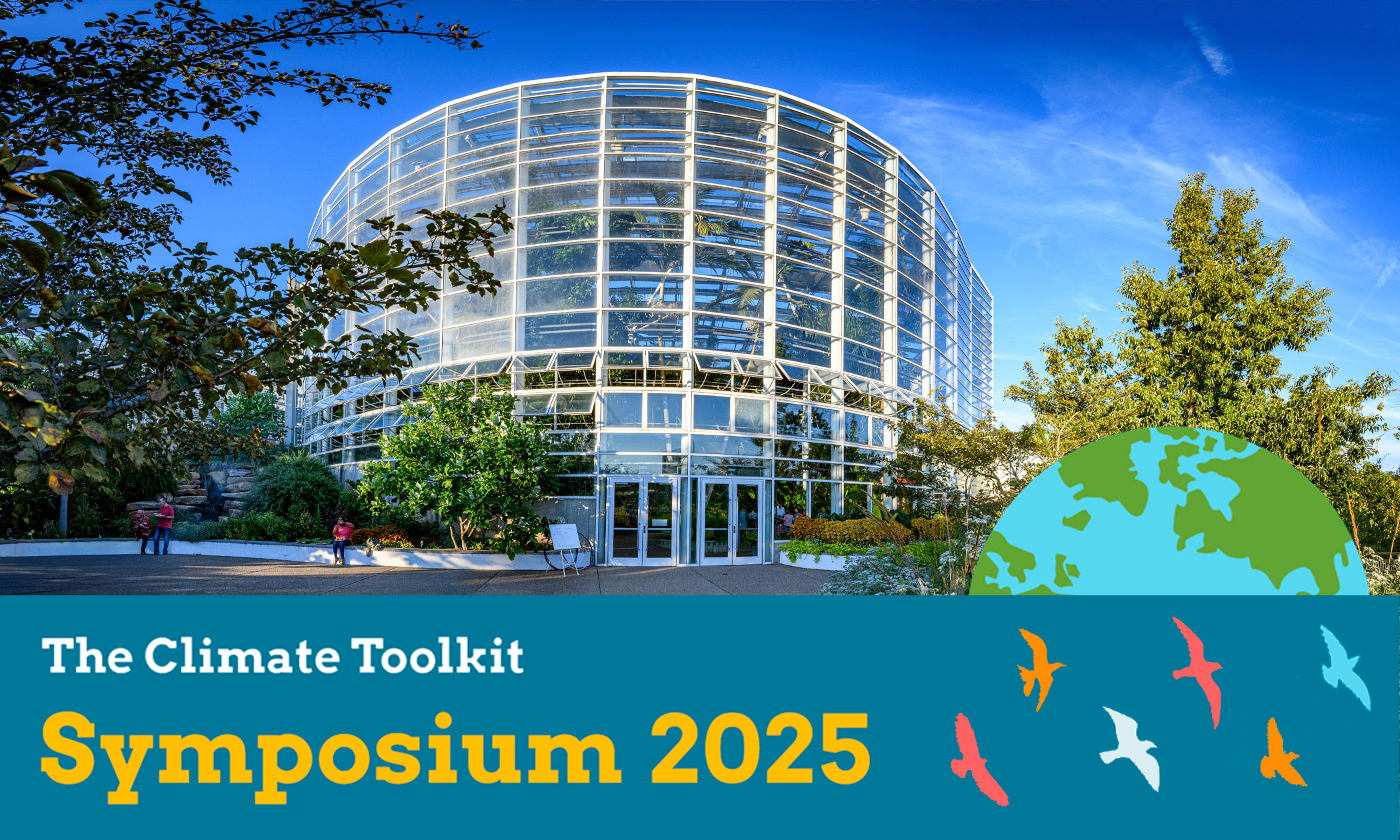
Climate Toolkit Symposium Resources
OCT. 26 – 28, 2025 | PHIPPS CONSERVATORY AND BOTANICAL GARDENS; PITTSBURGH, PA
Thank you for helping to co-create our inaugural Climate Toolkit Symposium, presented by Phipps Conservatory and Duke Farms. What an incredible two and a half days of learning, collaboration, connection, and conversation. We were thrilled to be in-person with such an inspiring collective of cultural institutions and look forward to the work ahead.
How to Use This Resource
The Climate Toolkit Symposium was structured in three plenary sessions, five breakout discussions, a keynote address, and three climate action workshops, each with its own set of presentations. On this page, you’ll find each session represented by a video recording, presentation slide deck, and links to further resources and literature. Get started below!
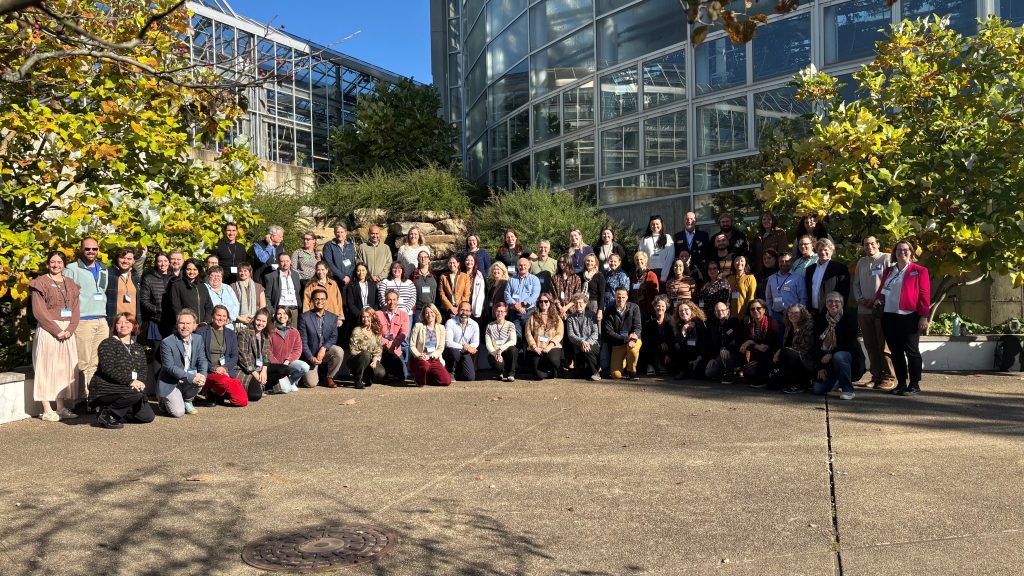
Plenary Session One: Energy and Decarbonization
Cultural institutions are stepping up as climate leaders by reducing carbon emissions and transitioning to renewable energy. In this panel, Richard Piacentini from Phipps Conservatory, Jon Wagar from Duke Farms, Rachel Novick from The Morton Arboretum, and Rafael de Carvalho from New York Botanical Garden shared how they are implementing ambitious decarbonization strategies, offering lessons learned from real-world successes and challenges.
Video Recording:
Presentation Slides:
- Phipps Conservatory – Richard Piacentini, President and CEO
- Duke Farms – Jon Wagar, Deputy Executive Director of Operations and Sustainability
- The Morton Arboretum – Rachel Novick, Ph.D., Director of Sustainability
- New York Botanical Garden – Rafael de Carvalho, Associate Vice President for Capital Projects
Plenary Session Two: Climate Interpretation & Engagement
How can institutions engage with the public on a changing climate? This panel presentation brought together Anais Reyes from The Climate Museum, Casey Mink from Natural History Museum of Utah, Jen Kretser from The Wild Center, and Mark Wourms from Bernheim Forest and Arboretum to highlight creative approaches to interpretation and engagement that inspire audiences to participate in climate solutions.
Video Recording:
Presentation Slides:
- The Climate Museum – Anais Reyes, Curator
- Natural History Museum of Utah – Casey Mink, Assistant Exhibits Developer
- The Wild Center – Jen Kretser, Director of Climate Initiatives
- Bernheim Forest and Arboretum – Mark Wourms, Ph.D., President, Chief Executive Officer
Breakout Focus Areas I: Waste Management and Nature-Based Solutions
Breakout tracks offered participants an opportunity for focused conversation on specific areas of climate action. Each session began with a short presentation from a subject expert, followed by a facilitated, round-table discussion to support knowledge sharing and problem-solving. Allie Tilson from the National Aquarium led a breakout room through engaging thought exercises on streamlining institutional waste practices; and Jeff Downing from Mt Cuba Center and Dr. Christy Rollinson from The Morton Arboretum led another breakout on utilizing our community platforms to accelerate nature-based solutions through native plant conservation, habitat restoration, and urban tree planting.
Waste Management and Staff Engagement
Interview:
Presentation Slides:
- National Aquarium – Allison Tilson, Senior Manager of Sustainability and Conservation Operations
Nature-Based Solutions
Video Recording:
Presentation Slides:
- Mt. Cuba Center – Jeff Downing, Executive Director
- The Morton Arboretum – Christy Rollinson, Ph.D., Senior Scientist, Forest Ecology
Breakout Focus Areas II: Climate Research; Conservation and Action; Facilities Management
The second round of breakout focus areas featured three discussions: Dr. Chelsea Miller and Dr. Lara Roketenetz from the University of Akron Field Station led a discussion on the intersection of education, community science and academic research; Dr. Shafkat Khan from Pittsburgh Zoo & Aquarium facilitated intimate round-table discussions on conservation and action beyond our campuses; and Jim Hanson and Joe Zalenko from Duke Farms engaged facilities and sustainability staff on electrification equipment, operations software, and best practices for facilities management.
Conservation and Action
Video Recording:
Presentation Slides:
- Pittsburgh Zoo & Aquarium – Shafkat Khan, Ph.D., Director of Conservation
Further Resources:
Climate Research
Interview:
Presentation Slides:
- University of Akron Field Station – Chelsea Miller, Ph.D., Assistant Professor, Global Change Biology, and Lara Roketenetz, Ph.D., Field Station Director
Facilities Management
Interview:
Presentation Slides:
- Duke Farms – Jim Hanson, Manager of Sustainability and Technology, and Joe Zalenko, Facilities Manager
Plenary Session Three: Youth Climate Advocacy
Amplifying youth voices is critical to advancing the climate movement and driving action within communities. In this panel and Q&A session, we heard directly from Emma Ehan, Anwita Maneish Nithya, Cortlan Harrell, and Marley McFarland, leaders of Phipps’ Youth Climate Advocacy Committee, on how to battle climate anxiety while activating the next generation of young changemakers.
Video Recording:
Presentation Slides:
- Phipps’ Youth Climate Advocacy Committee – Phipps’ YCAC Team Leaders
Keynote Address: “Our Finest Hour: Looking Back from the Year 2276”
In this keynote address, David W. Orr, Professor Emeritus at Oberlin College, provided a sobering outlook on the current state of the intertwined political and climate crises while offering key perspectives on how we as a society can advocate for climate action during turbulent times.
Video Recording:
Presentation Slides:
- “Our Finest Hour: Looking Back from the Year 2276” – David W. Orr
Essence as Compass: Guiding Climate Action with Regenerative Thinking
This session, led by Richard Piacentini from Phipps Conservatory and Sonja Bochart of LENS / Shepley Bulfinch, invited participants to explore the power of working from essence—connecting with the unique core of who they are and what truly matters. From this foundation, our actions become more regenerative, our strategies more aligned, and our potential for lasting impact more fully realized.
Interview:
Presentation Slides:
Resources and Worksheets:
Climate Action Resiliency Planning
This session, led by Stephanie Shapiro and Al Carver-Kubik of Environment & Culture Partners, engaged participants through institutional baseline climate and community assessments, implementation exercises, and prioritization frameworks to help form the basis of climate resiliency planning.
Interview:
Presentation Slides:
- Forming a Climate Action Resiliency Plan – Stephanie Shapiro, Co-Founder & Managing Director, and Al Carver-Kubik, Program Officer, Grants & Research, Environment & Culture Partners
Resources and Worksheets:
Civic Engagement: Becoming Your Community’s Climate Resource
Our final climate action workshop of the symposium, led by Rose Hendricks of ASTC’s Seeding Action Network, engaged participants to think deeply about strategies for civic engagement and community action to improve planetary health.
Interview:
Presentation Slides:
- Becoming Your Community’s Climate Resource – Rose Hendricks, Ph.D., Executive Director of Seeding Action
Resources and Worksheets:
- Becoming Your Community’s Climate Resource Worksheet
- ASTC’s Civic Engagement & Policymaking Toolkit
- Yale Program on Climate Change Communications Opinion Maps
- Potential Energy Coalition “Later is too late”: Global Data Explorer
Photography
Questions? Resources to share? Contact alampl@phipps.conservatory.org or 412-622-6915, ext. 6752
PRESENTED BY


About Phipps: Founded in 1893, Phipps Conservatory and Botanical Gardens in Pittsburgh, PA is a globally recognized green leader with a mission to inspire and educate all with the beauty and importance of plants; to advance sustainability and promote human and environmental well-being through action and research; and to celebrate its historic glasshouse. Encompassing 15 acres including a historic 14-room glasshouse, 23 distinct indoor and outdoor gardens and industry-leading sustainable architecture and operations, Phipps attracts more than half a million visitors annually from around the world. Learn more at phipps.conservatory.org.
About Duke Farms: Duke Farms is a living lab where we develop model strategies for nature restoration, wildlife conservation, and clean energy transition. Located on 2,700 acres in Hillsborough, New Jersey, our campus is a gathering place for global decision-makers and local neighbors to spark change. Duke Farms is a center of the Doris Duke Foundation which strives to build a more creative, equitable, and sustainable future. Learn more at dukefarms.org.


